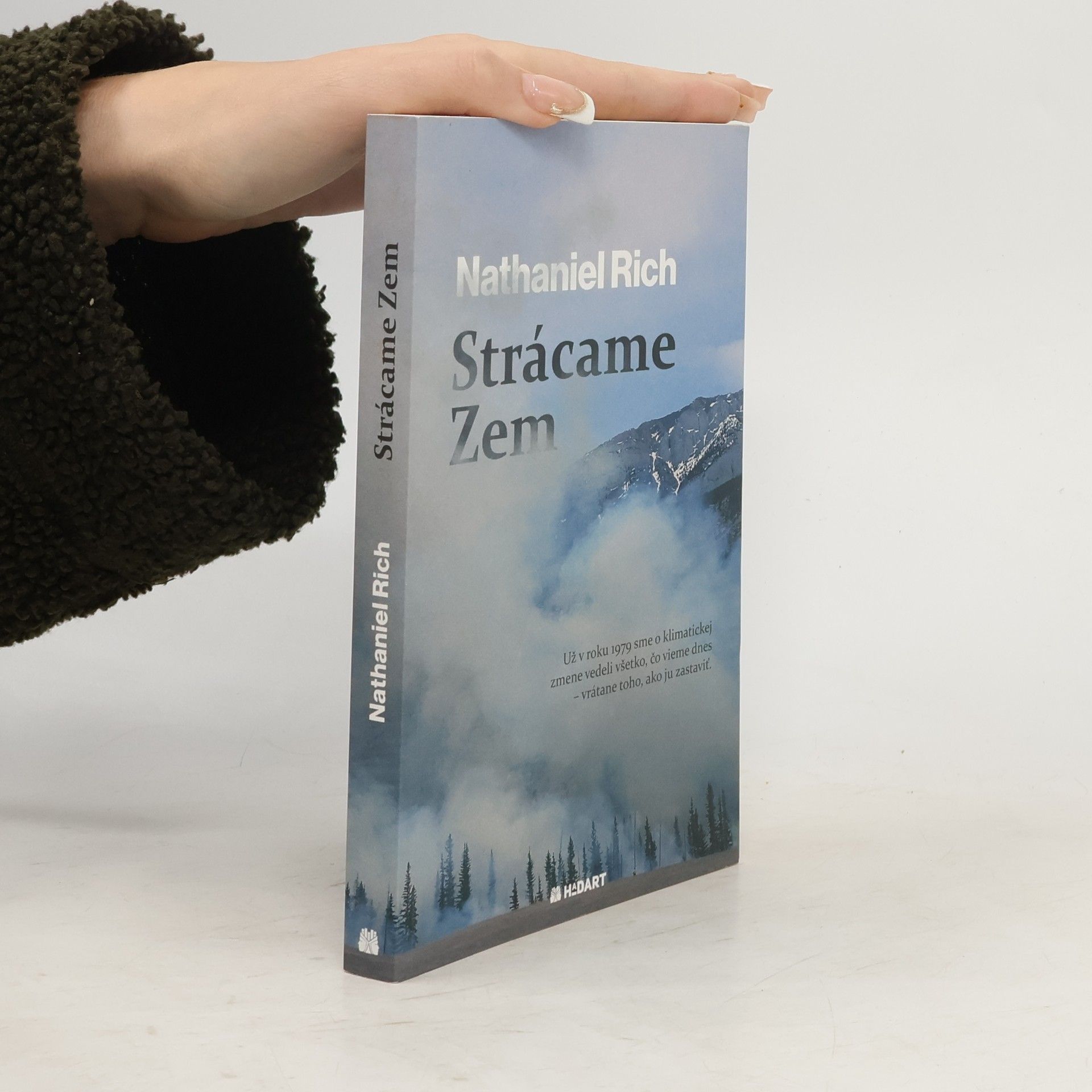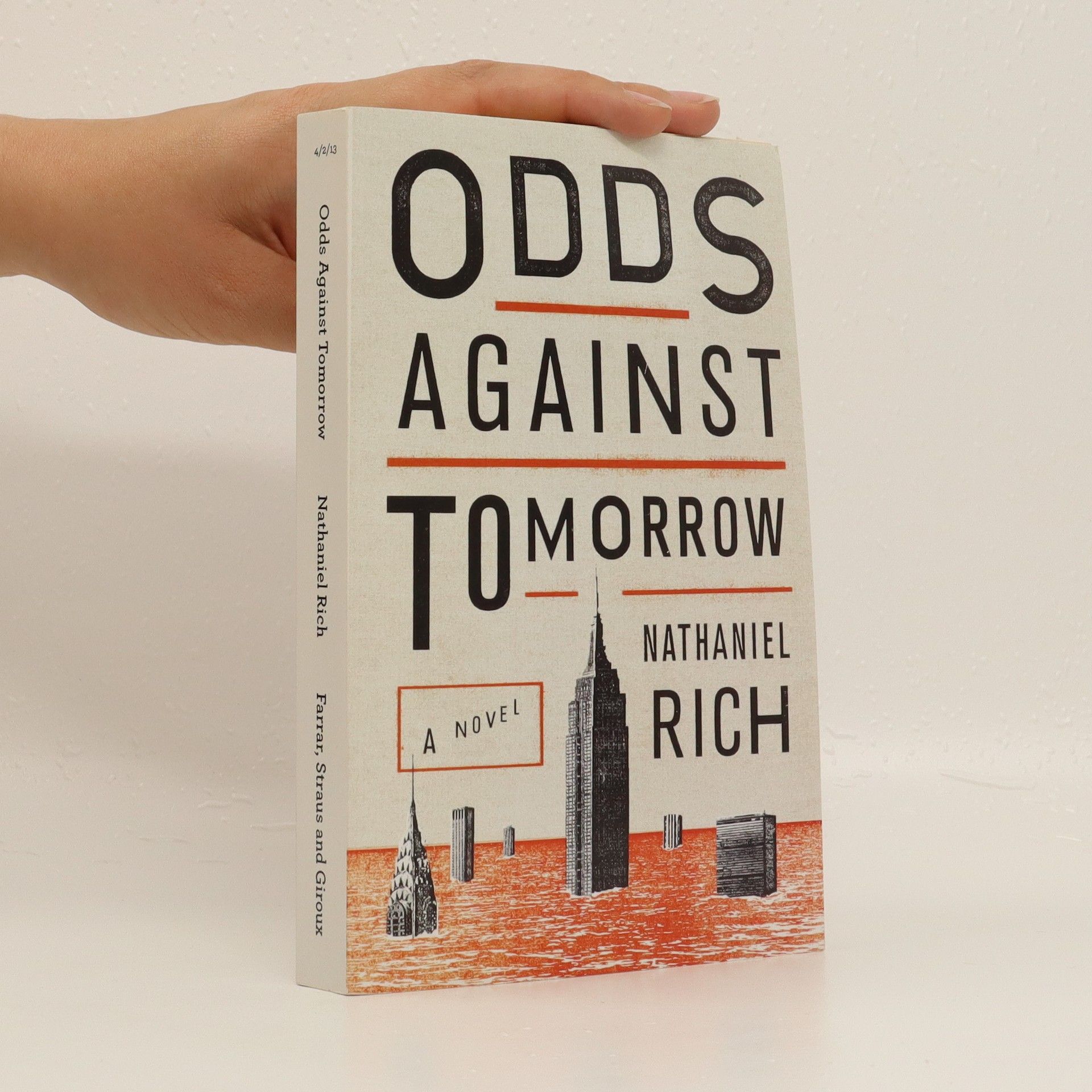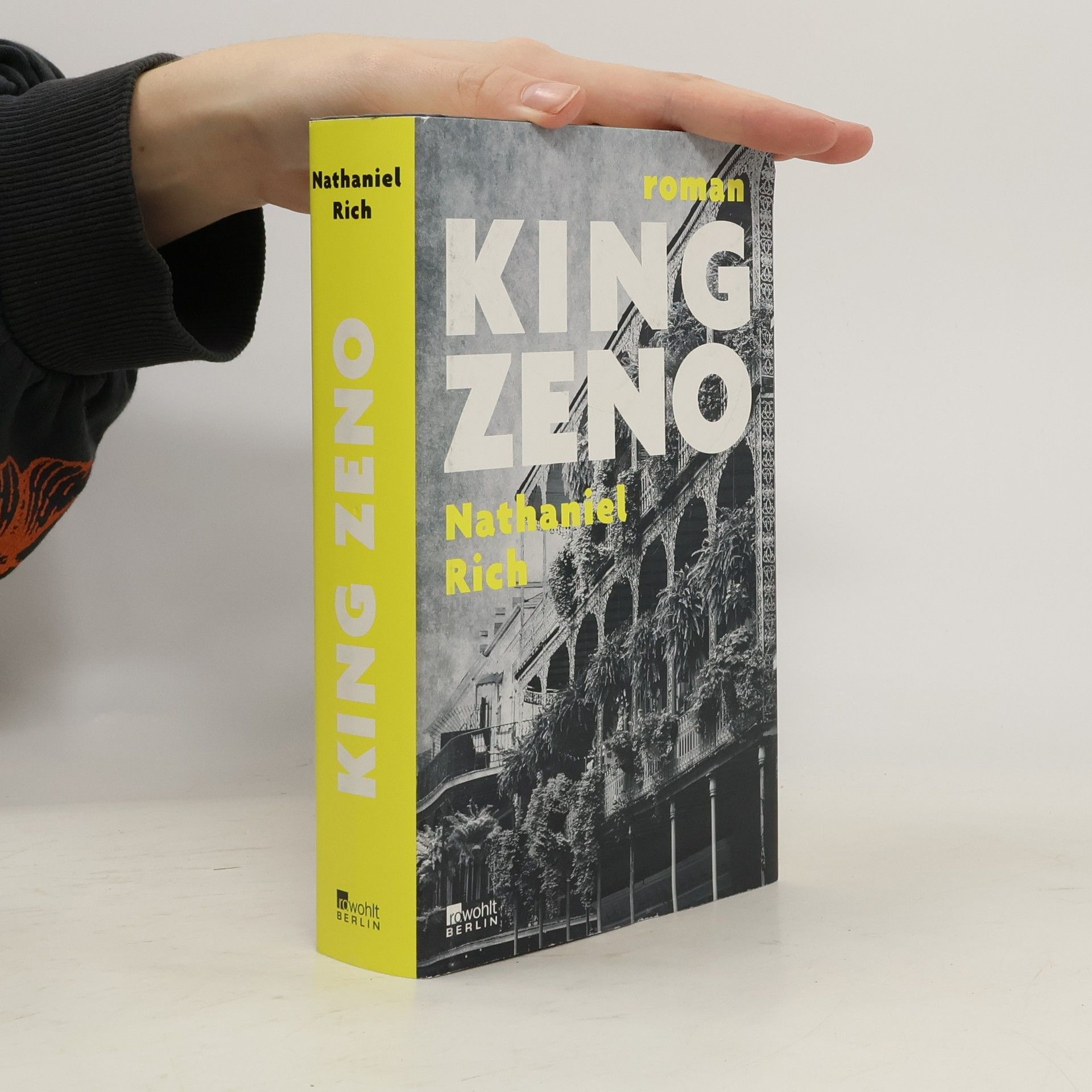By 1979, we knew all that we know now about the science of climate change - what was happening, why it was happening, and how to stop it. Over the next ten years, we had the very real opportunity to stop it. Obviously, we failed.Nathaniel Rich's groundbreaking account of that failure - and how tantalizingly close we came to signing binding treaties that would have saved us all before the fossil fuels industry and politicians committed to anti-scientific denialism - is already a journalistic blockbuster, a full issue of the New York Times Magazine that has earned favorable comparisons to Rachel Carson's Silent Spring and John Hersey's Hiroshima. Rich has become an instant, in-demand expert and speaker. A major movie deal is already in place. It is the story, perhaps, that can shift the conversation.In the book Losing Earth, Rich is able to provide more of the context for what did - and didn't - happen in the 1980s and, more important, is able to carry the story fully into the present day and wrestle with what those past failures mean for us in 2019. It is not just an agonizing revelation of historical missed opportunities, but a clear-eyed and eloquent assessment of how we got to now, and what we can and must do before it's truly too late.
Nathaniel Rich Livres
Nathaniel Rich est un romancier et essayiste américain dont les œuvres explorent souvent des thèmes sociaux et technologiques complexes. Sa fiction comme ses essais se caractérisent par une analyse pointue et une prose captivante. Rich examine les défis contemporains et l'avenir de l'humanité, incitant les lecteurs à réfléchir à leur propre place dans le monde. Son écriture est appréciée pour sa profondeur intellectuelle et ses qualités littéraires.






Second Nature
- 304pages
- 11 heures de lecture
We live at a time in which scientists race to reanimate extinct beasts, our most essential ecosystems require monumental engineering projects to survive, chicken breasts grow in test tubes, and multinational corporations conspire to poison the blood of every living creature. No rock, leaf, or cubic foot of air on Earth has escaped humanity's signature. The old distinctions—between natural and artificial, dystopia and utopia, science fiction and science fact—have blurred, losing all meaning. We inhabit an uncanny landscape of our own creation. In Second Nature, ordinary people make desperate efforts to preserve their humanity in a world that seems increasingly alien. Their stories—obsessive, intimate, and deeply reported—point the way to a new kind of environmental literature, in which dramatic narrative helps us to understand our place in a reality that resembles nothing human beings have known.From Odds Against Tomorrow to Losing Earth to the film Dark Waters (adapted from the first chapter of this book), Nathaniel Rich’s stories have come to define the way we think of contemporary ecological narrative. In Second Nature, he asks what it means to live in an era of terrible responsibility. The question is no longer, How do we return to the world that we’ve lost?It is, What world do we want to create in its place?
Odds against tomorrow
- 306pages
- 11 heures de lecture
A novel about fear of the future—and the future of fearNew York City, the near future: Mitchell Zukor, a gifted young mathematician, is hired by a mysterious new financial consulting firm, FutureWorld. The business operates out of an empty office in the Empire State Building; Mitchell is employee number two. He is asked to calculate worst-case scenarios in the most intricate detail, and his schemes are sold to corporations to indemnify them against any future disasters. This is the cutting edge of corporate irresponsibility, and business is booming. As Mitchell immerses himself in the mathematics of catastrophe—ecological collapse, war games, natural disasters—he becomes obsessed by a culture’s fears. Yet he also loses touch with his last connection to reality: Elsa Bruner, a friend with her own apocalyptic secret, who has started a commune in Maine. Then, just as Mitchell’s predictions reach a nightmarish crescendo, an actual worst-case scenario overtakes Manhattan. Mitchell realizes he is uniquely prepared to profit. But at what cost? At once an all-too-plausible literary thriller, an unexpected love story, and a philosophically searching inquiry into the nature of fear, Nathaniel Rich’s Odds Against Tomorrow poses the ultimate questions of imagination and civilization. The future is not quite what it used to be.
De tong van de burgemeester
- 294pages
- 11 heures de lecture
De tong van de burgemeester is een stoutmoedige, wervelende debuutroman waar twee verhaallijnen met elkaar zijn verweven. Een jonge man, Eugene Brentani, wordt gedreven door zijn liefde voor literatuur en taal en is een bewonderaar van de schrijver en avonturier Constance Eakins, die in Italië woont. De andere verhaallijn vertelt over een oude man, meneer Schmitz, wiens vrouw op sterven ligt en die, bang en in de war, zoekt steun bij zijn goede vriend Rutherford. Maar Rutherford is spoorloos, en zijn brieven, met een Italiaans poststempel, krijgen met de week een onheilspellender toon. De avonturen van de mannen voeren hen van New York City naar de bergachtige grensstreek van Noord-Italië, waar de grenzen tussen realiteit en verbeelding vervagen en de verhaallijnen een eigen leven gaan leiden. Boven dit vreemde, spookachtige landschap doemt het beeld op van de ‘Burgemeester’, een mythische figuur die door de inwoners van zijn stad als een ‘schitterende schepper’ wordt gezien, en wiens aantrekkingskracht onweerstaanbaar is.
Strácame Zem
- 192pages
- 7 heures de lecture
V osemdesiatych rokoch nastala výnimočná situácia, keď politici, veľké priemyselné firmy a aktivisti začali spolupracovať na riešení klimatickej krízy. Strácame Zem je príbeh o tom, ako zlyhali. V nasledujúcej dekáde sa hŕstka odhodlaných vedcov, politikov a stratégov vedená dvoma veľmi nepravdepodobnými hrdinami všetkými silami zúfalo snažila presvedčiť svet, aby konal. Riskovali pritom svoje kariéry a povesť. Strácame Zem je ich príbeh. Zároveň je to príbeh nás všetkých.
Dyskusje o zmianach klimatu raz po raz rozpalają media do czerwoności. Tymczasem pogłębiającemu się kryzysowi klimatycznemu można było zapobiec znacznie wcześniej. W 1979 roku naukowcy widzieli już wszystko o „efekcie cieplarnianym” i o tym, co wydarzy się, jeżeli temperatura będzie wzrastać rok po roku, a my nic z tym nie zrobimy. Już wtedy, na pierwszej światowej Konferencji w Genewie, naukowcy z pięćdziesięciu państw zgodzili się, że trzeba zacząć działać. Od tamtej pory nie zrobiono nic, gdyż na przeszkodzie stanęły aktualne interesy rządów najbogatszych państw. Przez kolejną dekadę garstka naukowców, polityków i strategów, kierowana przez dwóch nieprawdopodobnych bohaterów, ryzykowała swoje kariery, desperacko próbując przekonać świat do działania, zanim będzie za późno. Książka Nathaniela Richa opowiada o ich dramatycznej walce o planetę Ziemię.
New Orleans, nach dem Ersten Weltkrieg. Jazz, die Spanische Grippe, Rassismus, Prostitution, Mafia, dazu ein Axt-Mörder, der sein Unwesen treibt – eine Stadt wie ein Hexenkessel. Mittendrin der Ermittler Bill Bastrop, der traumatisiert aus dem Krieg in Europa zurückgekehrt ist und auf der Suche nach dem Axt-Mörder das verruchte French Quarter durchkämmt; die italienische Mafia-Patin Beatrice Vizzini, die nicht ahnt, dass sie den Mörder gut kennt, und mit allen Mitteln den Bau eines gigantischen Kanals zwischen Mississippi und Lake Pontchartrain vorantreibt; schließlich der junge schwarze Trompeter Izzy Zeno, der beim Bau des Kanals schuftet, um Frau und Tochter durchzubringen. Bei den Kanalarbeiten aber wird nicht nur Erde zutage gefördert – in New Orleans, das auf Schlamm gebaut ist, bleibt nichts und niemand lange begraben. Nathaniel Rich verwebt in «King Zeno» die Geschichten seiner drei Helden und genau recherchierte historische Hintergründe zu einem atmosphärisch dichten, filmisch packenden Spannungsroman. Das Porträt einer Stadt, in der Rassenkonflikte aufbrechen, aber auch der Jazz erfunden wird, und zugleich die Hommage an eine mythenumwobene Ära.
Die zweite Schöpfung
Wie der Mensch die Natur für immer verändert
Von synthetischen Giftstoffen in unseren Körpern über neu entfesselte Naturgewalten bis hin zur Erforschung der Unsterblichkeit: Nathaniel Richs Reportagen zeichnen ein eindrucksvolles Panorama unserer hochtechnisierten Welt. Wie unheilvoll menschliches Wirken und Natur miteinander verflochten sind, erleben wir, wenn Rich spannend wie in einer True-Crime-Novel von einer Stadt in den USA erzählt, die gegen einen Chemiekonzern und dabei buchstäblich um Leben und Tod kämpft. Weniger apokalyptisch und vielmehr futuristisch wirkt die Begegnung mit einem Koch aus Illinois, der sich als einer der Ersten auf die Züchtung von Laborfleisch verlegt hat. Und wie Science-Fiction liest sich die Geschichte eines weißen Kaninchens, das genetisch so verändert wurde, dass sein Fell grün fluoresziert, was die Frage aufwirft, ob wir uns nicht schon längst, als Schöpfer der Natur, zu neuen Göttern aufgeschwungen haben. Nathaniel Rich führt uns fesselnd und mit großer erzählerischer Kraft eine Welt vor Augen, wie wir sie noch nicht gesehen haben – und die doch nichts ist als die pure Gegenwart.

